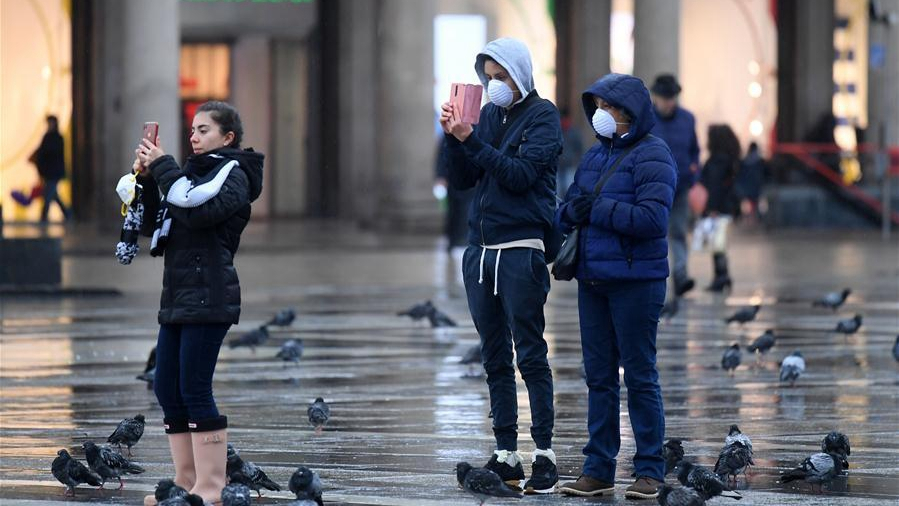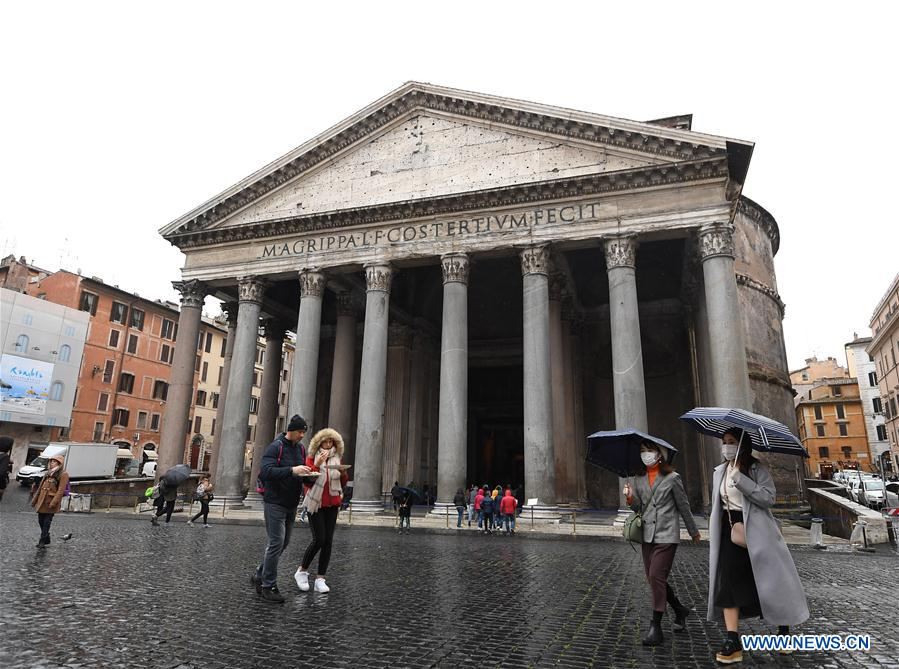
Pedestrians wearing face masks in Milan, Italy, March 2, 2020. /Xinhua
Pedestrians wearing face masks in Milan, Italy, March 2, 2020. /Xinhua
Editor's note: Matteo Giovannini is a finance professional at ICBC in Beijing and a member of the China Task Force at the Italian Ministry of Economic Development. The article reflects the author's opinions and not necessarily the views of CGTN.
The residents of Milan, Italy's financial hub, and surrounding Lombardy, the country's wealthiest and most populous region, on March 8 woke up to the news of Italian Prime Minister signing an urgent government decree in Rome with new measures to contain the spread of the coronavirus disease (COVID-19).
On March 9, the PM decided to extend the enforcement of the new measures to the entire Italian territory, forbidding over 60 million people from traveling for any purposes other than work or emergencies, while banning all public gatherings and sporting events.
The severe restrictions have become a necessary tool after the number of coronavirus infections jumped by almost 2,000 in just 24 hours leading to a total count of over 9,000 infected people and nearly 500 deaths.
As a consequence, Italy officially has become the first country in the world entirely locked down and, according to the updated statistics, is the second most-affected country by number of deaths after China, overcoming Iran and South Korea. It is the forth most-affected by number of infected people behind China, South Korea and Iran.
The decision taken during the weekend was aimed to immediately isolate the most-affected areas such as Lombardy region and other 14 provinces in Veneto, Piedmont, Emilia-Romagna and Marche regions, and quarantine people coming from "red zones" in order to avoid "green zones" from getting impacted.
The unexpected reaction of the citizens of "red zones" at the announcement, posting dramatic images on social media showing the night exodus from Milan railway station heading to the south of Italy or long queues at famous ski locations, is just an example of how difficult it is in a modern democratic country to make people understand the risks that they can expose themselves to and to everyone else with their individual actions.
In addition, violent protests have broken out in several Italian prisons due to the restrictions, with several prisoners requesting for an amnesty due to the high risk of contagion inside the overly crowded Italian prisons.
It has to be said that the government has had a clear responsibility in creating a climate of confusion and panic by leading without a clear strategy and making decisions later abruptly overturned with contrary decisions.
Many personalities in the government and in the media have for long remarked how a more drastic approach had become a necessity, frequently mentioning the example of China for its centralized approach and the necessity to use a tighter grip on citizens' behavior.

People wearing face masks walk past the Pantheon in Rome, Italy, March 2, 2020. /Xinhua
People wearing face masks walk past the Pantheon in Rome, Italy, March 2, 2020. /Xinhua
In this sense, Italy's approach has been to simply copy and paste China-style measures such as checking people's body temperature, surveilling the entry/exit to transportation and office complexes, closing schools and banning public events and adoption of smart work policies for companies.
These are certainly good initiatives by the Italian government and represent a good start; but in my view, these measures alone cannot have the same impact as they are having in China because of the lack of scale and amount of resources that Italy can mobilize and because the two countries have totally different cultures at their cores.
China is by nature a collectivist society and in this sense, the government has a higher probability of success.
On the contrary, Italy having at its core a Western-based value system is mainly an individualistic society where the interest of the person normally prevails on the general interest and this makes the job of the government in controlling citizens' behavior and coordinating actions more difficult and potentially unsuccessful.
The key point here is that a more resolute approach of the Italian government is unquestionably welcome; but it cannot simply work by importing a policy or an approach that is successful in another country and think that it can have the same outcome.
The Italian government's job is to try to change people's mindset and make them understand that now it's time to pause normal life habits and make sacrifices in order to go through the storm all together.
The decisions made by the Italian government could be certainly unpopular among the citizens and could even have a boomerang effect on the coalition in power in case of new political elections in the autumn of this year. But desperate times call for desperate measures and the health of people must have the absolute priority over the egoism of individual choices.
(If you want to contribute and have specific expertise, please contact us at opinions@cgtn.com.)